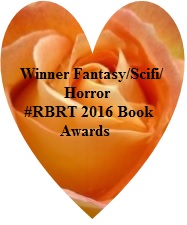Alternative Publishing Models
Panel discussion at Loncon3

Perhaps my title is a bit unfair – there were a number of topics on the agenda for this panel, it just seems ironic that – no, let me get into that after you’ve read the following description for yourself:
‘Between the disappearance of independent bookshops, the dominance of Amazon, the rise of ebooks and the popularisation of crowdfunding sites like Kickstarter, publishing is at a crossroads. As the traditional channels for selling books are shrinking and homogenising by the year, so technology is opening up new possibilities. Who sets the trends now? How close are the self-publishing success stories to the experience of the average ‘indie’ author? In a world of cut-price Kindle-only books jostling for attention in a crowded marketplace, is it easier or harder these days for new books to stand out from the crowd? And while Kickstarter offers the chance for less commercially viable works to be funded, how do you convince an audience to back you, and how do you go beyond that market once the book is available?’
Now that you’ve taken a look, what do you think? Would you expect at least one indie publisher on this panel?
I know I did.
What we had was:
Marcus Gipps – editor at Gollancz
Alex Ingram – bookseller
Shahid Mahmud – owner of a small press, publishing authors such as Kevin J. Anderson, Mercedes Lackey, Robert Silverberg and Larry Niven.
Francesca T. Barbini who, although starting out as an indie, is now published by Oloris Publishing.
So my feeling was that Francesca (lovely lady, we talked a lot after the panel) was the token gesture towards the indie side of things, but as for the ‘average indie author’ mentioned in the above description, not a sign of one!
And of course, the advice from all the panellists was: get a traditional publishing deal, every time.
As if we all can!!!
At the last writing festival I attended, an author presented the reality of the figures. I can’t replicate them exactly, but it went closely along the lines of: agents sign up approximately 1% of the authors who submit to them, and a publisher will buy about 10% of the books sent to them by the agents. Go do the math.
Not promising, is it?
So was I wrong, expecting to find an indie representative on this panel? I find at all these literary presentations, that the advice handed out is always the same – forget indie publishing, how can you expect to sell your own books when you can’t get them onto the physical shelves in a bookstore?
Wake up call! Yes, it would be lovely to see my books on the shelves of the local Waterstones, but
- Book shops keep failing, closing down, going bust
- Even if my book made it to that stage, no publisher is going to invest huge amounts of money in marketing it as I’m an unknown, so I will be doing most of my own marketing. But wait! Isn’t that what I’m already doing as an indie?
- I would lose control over my covers, would have to write what they want, whether it’s what I want or not, and have to produce to a schedule of their choosing
- I could expect a small advance, and nothing more until the book earns out, having actually already waited 2 years for it to appear in print…
So after this panel, I wavered for a couple of days, thinking I might start submitting to publishers again (I’ve had 2 agents so far, but no sale). And then I thought about what I would be giving up, and I got real.
Just a pity that I’m sure most of the writers at that presentation will have gone away convinced that a traditional deal is the only legitimate way to go, and all for the lack of an indie representative to put our side in front of them for a balanced picture, offering the opportunity for an informed decision.
























I was glad to see you wake up and come to your senses. You said it loud and clear. The process was concise. Why would you want to work as hard as you are currently working on marketing yourself to donate a cut to a publisher? A few years and decades ago it made sense. It’s a different world now my friend. Indies are the driver for their own books, period! We struggle enough to make a living so why share. 🙂
LikeLike
(Whining) But I want to see my book in a bookshop 😦
(Shrugs) At least I’m earning more than most of my friends who have ‘made it’ 😉
LikeLiked by 1 person
Yup, that’s the way it seems to be going. Who knows Deb, this biz changes so much, in a short few years I won’t be surprised if Indie books get picked up in bookstores. 🙂
LikeLike
I have all my fingers crossed for that outcome. Of course that make typing tricky 😉
LikeLiked by 1 person
I still think there has to be some way to pool marketing and get placed in bookstores. . . . 🙂
LikeLike
Sure should be, but we don’t yet seem to have got it sussed. Must try harder… 😉
LikeLiked by 1 person
I keep wanting to work on it, but I am so thrilled to have other edits to do right now that all my attention is going there! Speaking of edits . . .
Book THREE?!?!? 🙂
LikeLike
Working on it…
LikeLike
[…] experience last year wasn’t unique. Deborah Jay talks here about the Loncon panel on indie-publishing that didn’t include a single person currently […]
LikeLike